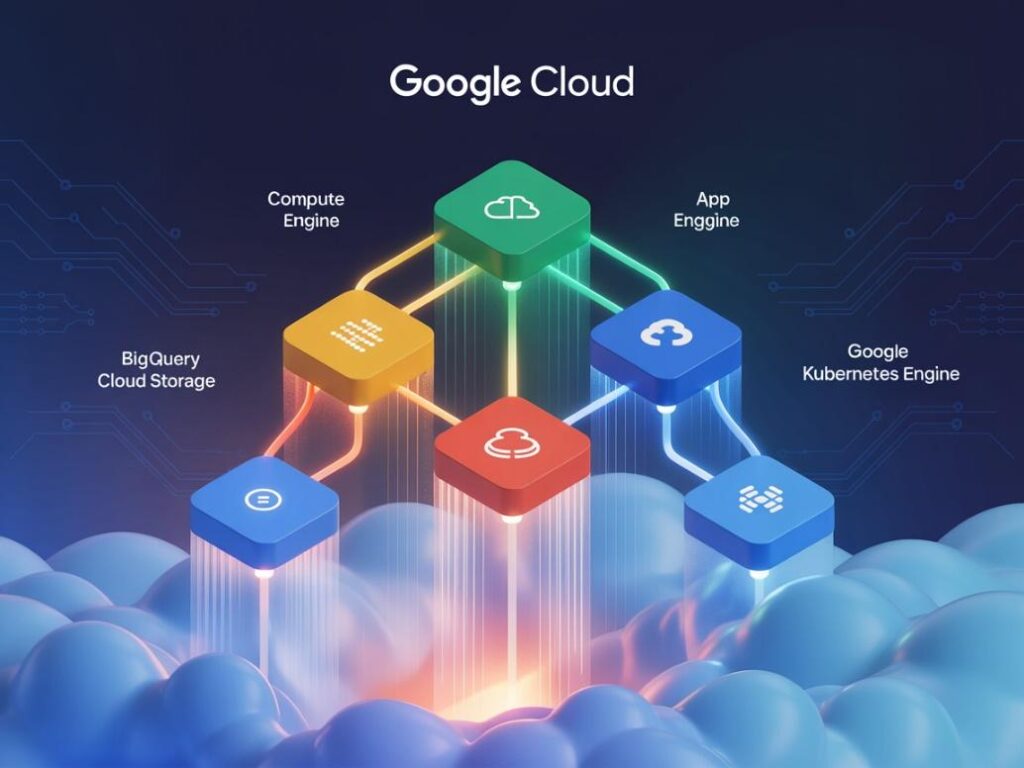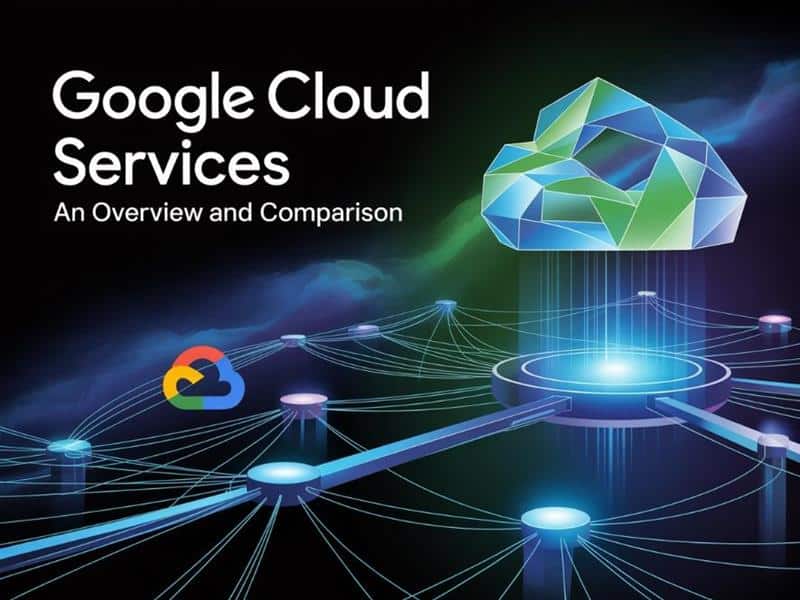Today every business needs to work faster smarter and safer either by a small team or a growing company anywhere in the world. Cloud solutions have become a must for all businesses, they are now used to store files run apps manage data and keep everything online without having to go through the expense of purchasing tons of expensive hardware.
Now the thing is that not every platform serves every kind of client. Some of them say that they suit more for enormous enterprise requirements, while others might prove useful for just app development or data analysis. In this blog, we shall see what Google Cloud Services is about, what it does and how it fares against already popular platforms of Amazon Web Services (AWS) and Microsoft Azure.
If you already have an understanding of cloud services, this blog will help you comprehend how Google Cloud fits in the overall picture and how it compares with other providers.
What Are Google Cloud Services?
Google Cloud Services, also called Google Cloud Platform or GCP, is the cloud computing platform of Google. It was the first to open its doors in 2008, and in the last decade, it has become one of the top three in the cloud provider space.
GCP gives you tools for building websites, running apps, storing data, and managing large systems-all online. You wouldn’t ever have to own a server or data center. Everything runs on Google’s infrastructure, the same one that powers YouTube, Gmail, and Google Search.
Main tools inside Google Cloud:

- Compute Engine – Run virtual machines to power your apps or websites.
- App Engine – Build and deploy apps without managing servers.
- Cloud Storage – Save and back up files and media online.
- BigQuery – Analyze massive amounts of data with speed.
- Google Kubernetes Engine (GKE) – Manage containerized applications easily.
These are just a few. Google Cloud has hundreds of services depending on what your business needs.
Top Benefits of Google Cloud for Businesses
If you’re wondering why a business should choose Google Cloud over other providers, here are the standout features that make it attractive:
1. Scalability and Flexibility
You can start small and grow fast. Google Cloud moves at your pace-whether you’re catering to ten users or ten million. This flexibility comes in handy for businesses that want to keep it lean on some fronts while growing fast on others.
2. Built-In AI and Machine Learning Tools
Google has always been the leader in AI. Within the box, GCP makes these powerful tools available for you. It’s a big advantage for the business that deals with automation, data, or prediction.
3. High Security
Google is armed with strong built-in security for its Cloud. Identity management, encryption, and compliance support are offered. This is very important when it comes to businesses that manage sensitive data.
4. Global Reach with Low Latency
Google has a huge network. Fast, reliable access will allow you to serve customers across the globe. This has a huge impact on performance and user experience, especially when it comes to applications.
5. Smooth Integration with Google Workspace
If your team already uses Gmail, Google Drive, or Google Docs, Google Cloud streamlines that integration. It’s an all-in-one setup that just works.
All these benefits make GCP a strong option for companies looking to streamline their operations and improve their IT infrastructure, much like what’s often discussed in business-focused cloud strategies.
Where Google Cloud Excels: Use Cases and Industries
Every cloud platform shines in different areas. Google Cloud excels in these industries:
Tech Startups
GCP is friendly to startups. It is priced low, reasonably flexible in payment structures, and comes with tools that help you launch products fast.
Data-Driven Businesses
For big data and analytics, Google’s Big Query is one of the finest. Speed and the ability to query vast datasets seamlessly make it great.
Gaming
Game developers use Google Cloud to host multiplayer games, manage users’ data, and optimize their experience by reducing the lag. Its performance and global reach make it a solid option, especially when looking to enhance gaming performance and user experience.
AI and Machine Learning Companies
Google’s AI tools let firms build intelligent apps, such as chatbots, recommendation engines, and automated report generation tools – without needing a large tech team.
Google Cloud vs. AWS vs. Azure: A Side-by-Side Comparison
Let’s be real: AWS, Azure, and Google Cloud are all strong platforms. But they serve different kinds of businesses. Here’s a basic comparison:
| Feature | Google Cloud | Amazon Web Services (AWS) | Microsoft Azure |
| Ease of Use | Very user-friendly | Can feel complex | Easy for MS users |
| AI & ML Tools | Advanced and native | Available but less refined | Decent tools |
| Pricing Transparency | Simple and clear | Often confusing | Mixed experience |
| Best Use Case | Analytics, AI/ML | Enterprise-scale infra | MS Office integrations |
If you’re a data-heavy business or want strong AI tools, Google Cloud is often the best pick. But if you’re running a huge corporate network or rely on Microsoft tools, AWS or Azure might make more sense.
When comparing cloud service providers, it’s all about what fits your business needs—not who’s the biggest.
How to Choose the Best Cloud Platform for Your Needs
Before jumping in, ask yourself a few things:
- Do you need powerful data analytics?
- Are you using a lot of Google products already?
- How tech-savvy is your team?
- What’s your monthly budget?
If you’re already using tools like Google Docs, Gmail, or Google Meet, then moving to GCP can make your setup even smoother. On the other hand, if you’re running Windows-heavy systems, Azure might be a better fit.
When choosing between cloud platforms, think of your use case and long-term growth. Don’t just go for the most popular. Go for what makes the most sense for your business model.
Conclusion: Is Google Cloud Right for Your Business?
Google Cloud Services delivers powerful tools for businesses that need reliable infrastructure, advanced analytics, and built-in AI. It works best for companies that want speed, flexibility, and smooth integration with tools they already use—especially if they’re already within the Google ecosystem.
Still, every business has different needs. Some might benefit more from Amazon’s scale or Microsoft’s deep integration with Windows-based systems. What matters most is finding the platform that aligns with your goals, workload, and team.
Google Cloud isn’t always the answer—but when it fits, it can be a game-changer.
Take time to compare your options, review your goals, and choose the cloud platform that truly fits how your business works.

